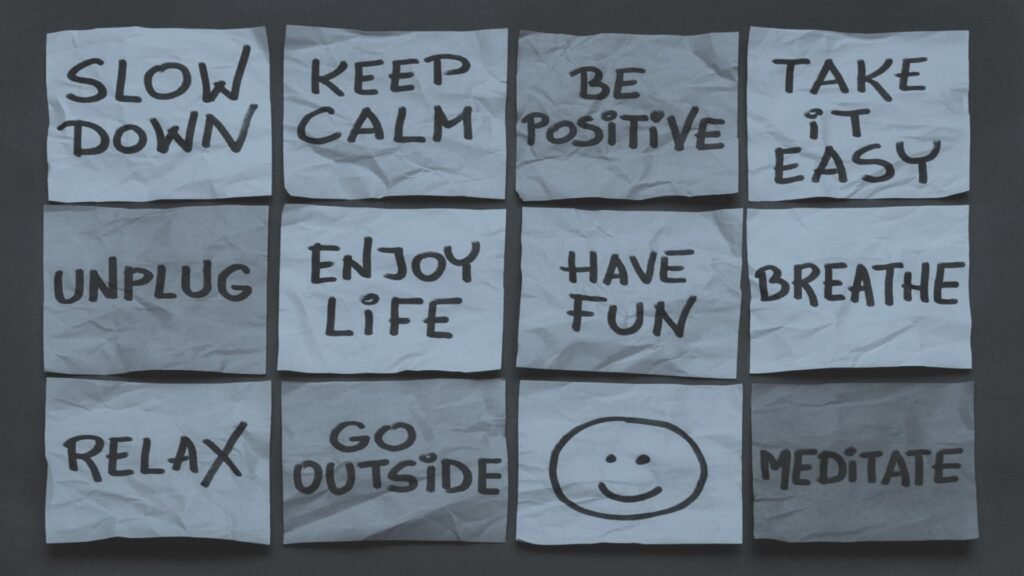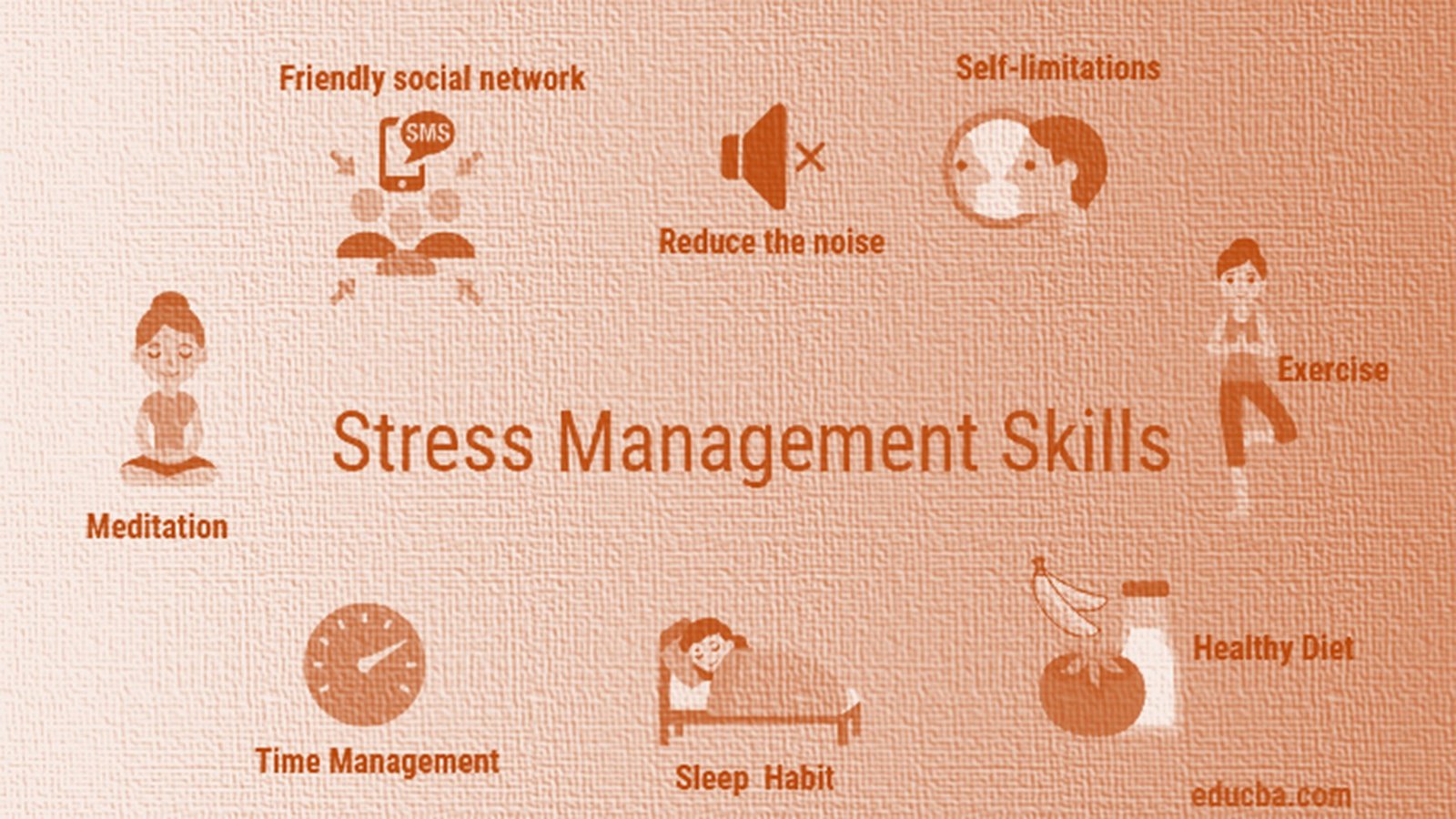Managing Stress is an unavoidable part of life, but when left unmanaged, it can have significant health consequences. From mental fatigue to serious physical conditions like heart disease, stress can wreak havoc on your well-being. Learning how to effectively manage stress is crucial to overcoming these health hazards and improving your overall quality of life.
In this post, we will explore the relationship between stress and health, why managing stress is essential for long-term well-being, and practical strategies to reduce stress and its harmful effects.
What is Stress?
Stress is the body’s natural response to challenging or threatening situations. While short-term stress can motivate you to take action or solve problems, long-term or chronic stress can harm both your mental and physical health.
Common stressors include work pressure, financial difficulties, personal relationships, and health concerns. Understanding the sources of your stress is the first step toward managing it.
The Physical and Mental Impact of Stress
When you’re stressed, your body releases hormones like cortisol and adrenaline, triggering the “fight or flight” response. Over time, chronic stress can lead to health problems such as:
- Cardiovascular Issues: High blood pressure, increased risk of heart attack and stroke
- Digestive Disorders: Stomach ulcers, irritable bowel syndrome (IBS)
- Mental Health Problems: Anxiety, depression, and cognitive decline
- Immune System Suppression: Making you more susceptible to infections and diseases
- Sleep Disorders: Insomnia or disrupted sleep patterns
Why Managing Stress is Crucial to Overcoming Health Hazards

Managing stress is not just about feeling better emotionally; it is essential for your long-term physical health. Stress is often referred to as a “silent killer” due to its ability to exacerbate existing health conditions and contribute to the development of new ones.
- Prevents Chronic Diseases
Chronic stress contributes to health conditions such as hypertension, diabetes, and autoimmune disorders. By managing stress, you reduce your risk of developing these diseases. - Improves Mental Health
Stress management can prevent mental health problems like anxiety and depression, ensuring that you stay emotionally balanced. - Enhances Immune Function
When you’re stressed, your immune system weakens, making you more susceptible to illness. Managing stress can keep your immune system strong and reduce the frequency of sickness. - Boosts Cognitive Function
High levels of stress negatively impact your memory and decision-making abilities. Stress management improves mental clarity and cognitive function.
How to Manage Stress Effectively
Effective stress management involves a combination of lifestyle changes, mental techniques, and physical practices. Here are practical strategies to help you manage stress and reduce its impact on your health.
1. Identify the Source of Your Stress
Before you can manage stress, you need to understand what is causing it. Common sources include work pressure, family responsibilities, or financial concerns. Once you’ve identified the cause, you can take steps to address it.
Pro Tip: Keep a stress journal to track triggers and patterns. This will help you identify what situations or people cause you the most stress and how to avoid or minimize those triggers.
2. Practice Relaxation Techniques
Incorporating relaxation techniques into your daily routine can help reduce the physical effects of stress. These techniques calm the nervous system and promote mental clarity.
- Deep Breathing: Helps activate the parasympathetic nervous system, which counteracts stress.
- Meditation: Encourages mindfulness and reduces anxiety.
- Progressive Muscle Relaxation: Involves tensing and releasing muscles to relieve physical tension.
Pro Tip: Set aside 10-15 minutes each day for a mindfulness practice, such as guided meditation or yoga.
3. Stay Physically Active
Exercise is one of the most effective ways to combat stress. It releases endorphins, which are natural mood lifters, and helps to clear your mind.
- Aerobic Activities: Such as jogging, cycling, or swimming, which increase heart rate and reduce stress.
- Strength Training: Improves physical resilience and enhances mood.
- Yoga or Tai Chi: Combines physical movement with mindfulness, providing a dual benefit.
Pro Tip: Aim for at least 30 minutes of physical activity most days of the week. Even a short walk during a stressful day can significantly lower stress levels.
4. Maintain a Healthy Diet
What you eat can have a significant impact on how you manage stress. Eating a balanced diet keeps your energy levels stable and supports brain function.
- Foods to Include: Omega-3 fatty acids (found in fish), antioxidants (in berries and vegetables), and magnesium (in leafy greens).
- Foods to Avoid: Excessive caffeine, sugar, and processed foods can spike stress hormones and negatively affect mood.
Pro Tip: Plan healthy, nutrient-dense meals ahead of time to avoid reaching for unhealthy comfort foods when stressed.
5. Get Adequate Sleep
Sleep is essential for managing stress. A lack of sleep can increase cortisol levels and make it harder to cope with daily stressors.
Pro Tip: Stick to a regular sleep schedule, and create a calming bedtime routine. Avoid screens before bed, as blue light can interfere with melatonin production, the sleep hormone.
6. Develop Healthy Boundaries
One of the biggest contributors to stress is feeling overwhelmed by commitments. Learning how to set boundaries and say “no” can greatly reduce stress.
- Time Management: Prioritize tasks and delegate when possible.
- Work-Life Balance: Ensure you have downtime to recharge and prevent burnout.
Pro Tip: Use time-blocking techniques to manage your day efficiently, dedicating specific times for work, rest, and personal activities.
7. Seek Social Support
Strong relationships can be a buffer against stress. Talking to friends, family, or colleagues about your stressors can help you gain perspective and feel supported.
Pro Tip: Don’t hesitate to seek professional help from a counselor or therapist if stress is overwhelming.
The Role of Technology in Stress Management
Technology has become a double-edged sword in the stress management debate. While some people find technology to be a source of stress due to constant connectivity and work demands, it can also serve as a valuable tool in managing stress.
1. Stress Management Apps
There are numerous apps designed to help you manage stress, offering guided meditations, breathing exercises, and sleep aids. Examples include Calm, Headspace, and Insight Timer.
Pro Tip: Use these apps to build a daily habit of mindfulness and relaxation exercises.
2. Wearable Technology
Devices like fitness trackers and smartwatches can monitor your physical health indicators such as heart rate and sleep patterns. By keeping track of your body’s response to stress, you can make informed decisions on how to manage it.
Pro Tip: Set daily health goals, such as 10,000 steps or a certain amount
of sleep, and use wearable technology to track your progress and ensure you’re taking care of both your physical and mental health.
Conclusion
Stress is a part of life, but it doesn’t have to control your well-being. By learning how to manage stress effectively, you can not only improve your mental and emotional health but also reduce your risk of developing serious physical health problems. Incorporating relaxation techniques, staying physically active, eating a balanced diet, and seeking social support are just a few ways to combat the negative effects of stress.
Remember that managing stress is an ongoing process, and it requires consistent effort and lifestyle changes. The key is to find the techniques that work best for you and make them a part of your daily routine.




